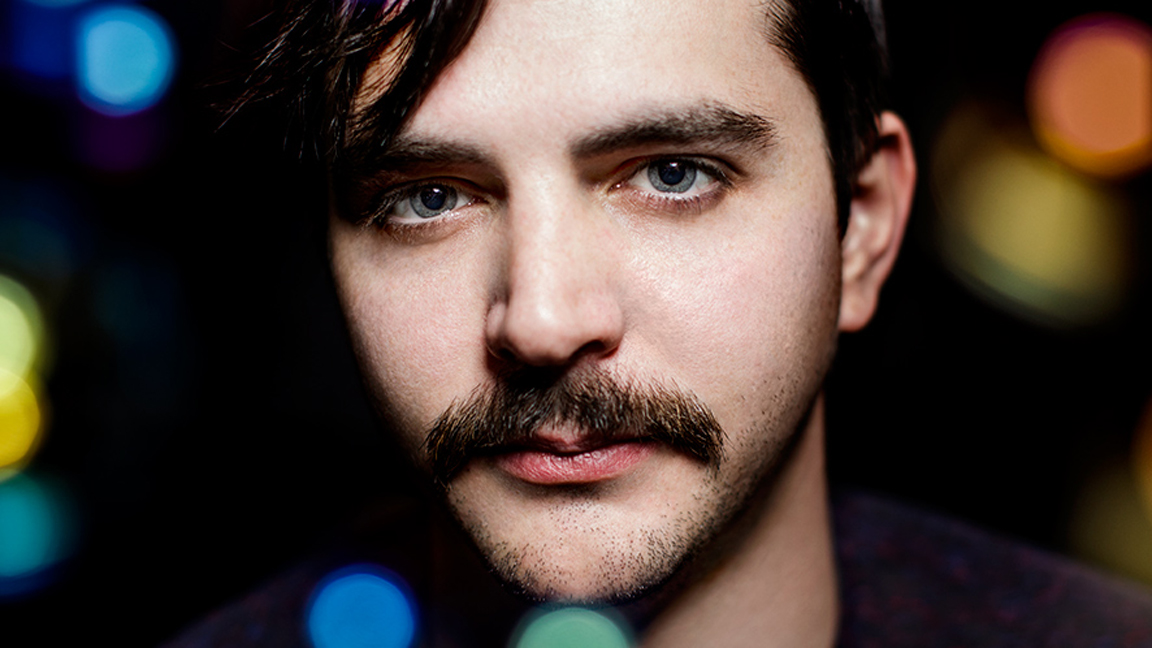BACKSTORY: Lifelong Texan Roger Sellers swapped out acoustic instruments and his classical training for a loop station and a fresh perspective on music making
FROM: Austin, TX (via the outskirts of Houston)
YOU MIGHT KNOW FROM: The live-looped video for his single “Appeals”
NOW: Building up and breaking down emotional swells live on stage behind the release of Primitives, his minimal electro-pop debut, out now on Mom + Pop
It’s a little bit ironic that, in order to shed his given name, all Roger Sellers had to do was go home. Looking to distance himself from the folkier associations of his Austin environs, and to avoid being erroneously labeled a DJ even once more, the songwriter sought respite and a new name for his still-gestating electronic project at his parents’ home in the Houston suburb of Spring, Texas. There, Sellers’s eyes fortuitously fell upon the sign demarcating his street—Bayonne Drive—and, suddenly, he knew what he had to do.
“I noticed that it’s kind of a beautiful word,” Sellers says of Bayonne, his adopted musical name. “I liked the way it looked.” The name struck a personal-yet-abstract chord, and Sellers rebranded Primitives, his flourishing new album of autonomously generated soundscapes, with the Bayonne moniker.
But what really is in a name, anyway? For Sellers, the focus is much less on superficial descriptors and much more on the inherent liberties of his circuitous working process. Having cycled through a series of loop pedals beginning in his early twenties, Sellers finally landed on the BOSS RC-20 and soon found that his kindred mechanical spirit unlocked a new horizon of musical possibility—via its limitations.
“There’s no one equation,” Sellers says of his highly spontaneous process.
“It doesn’t really allow for much second guessing,” he says. “I do all of the thought later, when I’m putting [tracks] into Pro Tools. That’s what I like about looping; it’s natural, and it happens pretty quickly. If I like something, I’ll keep building on it. I’ll make more loops and kind of put it all together.” Sellers used this method to construct the eight tracks of Primitives, drawing inspiration from some of his main influences, many of whom curiously originate from the city of Baltimore.
“I’ve always been a huge fan of Animal Collective,” he says. “They’ve been a big influence on my music for a very long time. I’m also a big fan of Beach House, and Dan Deacon.” Another lifelong influence, acquired at the time a young Sellers was still busy banging on paint cans back in Spring, is Phil Collins. Listening to a builder like Primitives’ opener, “Intro,” one can hear the gated-reverb tom fills often punctuating Collins’s brilliant solo work.
“There’s no one equation,” Sellers says of his highly spontaneous process, before backpedaling slightly with regards to one of Primitives’ most alluring aspects. “I mean, there’s the drums. It’s a very percussive record, and the way that I perform it live, the drums are a huge part of it.” Sellers did remain true to his acoustic background by populating his record not only with live drum tracks, but also many piano-driven loops and other forms of unplugged instrumentation. It might be this aspect of Primitives that lends the album its particular beauty. Despite an admitted tendency toward “densing things up,” Sellers’s resistance to using purely synthesized sounds gives his electronic-feeling music a certain aspect of breathing room, and empowers it to avoid the digital wash.
“I think it can be stifling,” Sellers says of his process, “because sometimes I’ll want to work on something different. But, it’s pretty authentic. It’s what I want to do most of the time now.” You can chalk it up as a sure thing that when the Texan winds coax Bayonne to adapt, Sellers is possessed of the prowess and open mind to make it so in a manner of his choosing. Just please be sure not to mistake him for a DJ. FL







